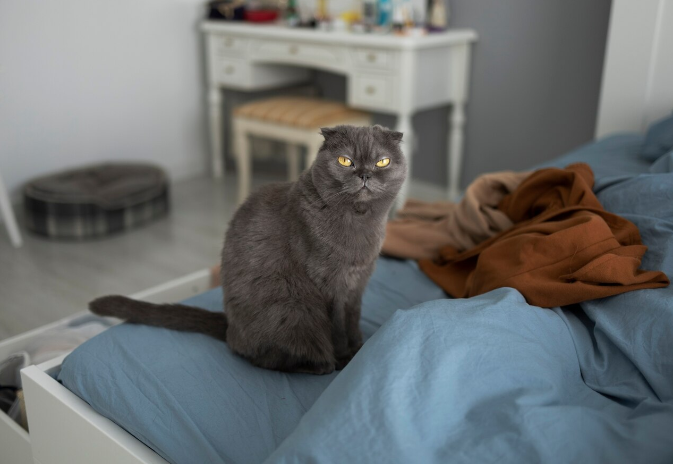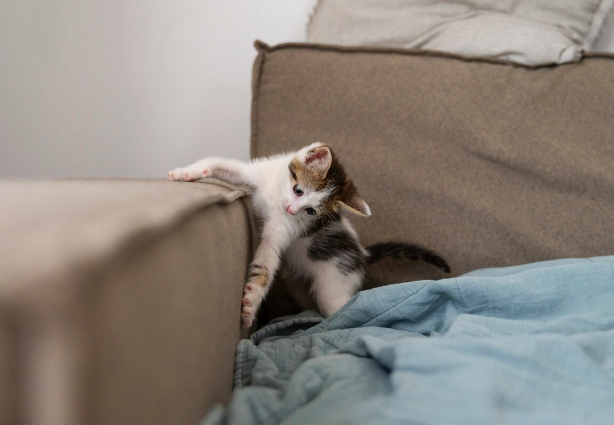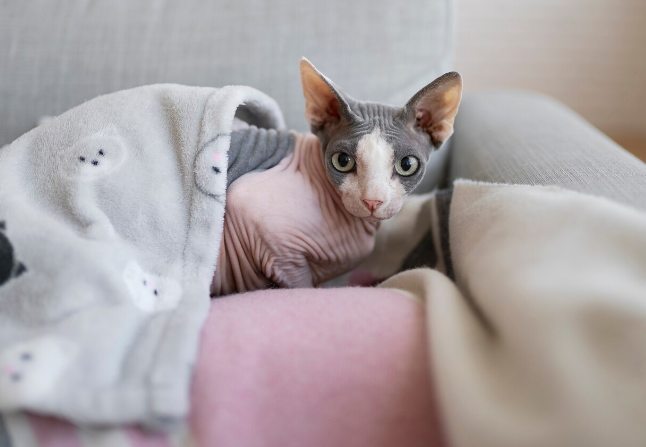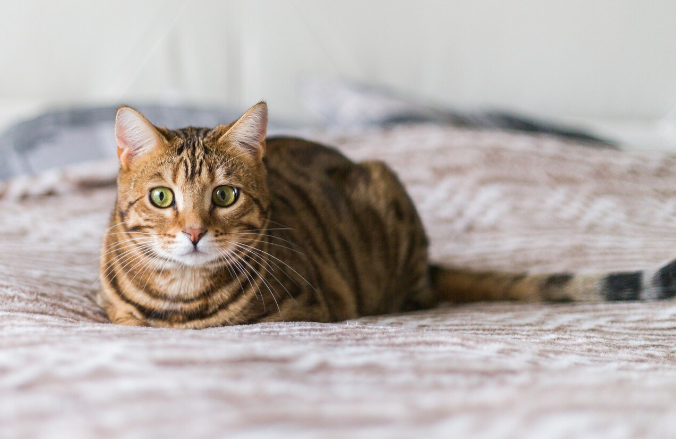2024-06-24
As pet owners, we often witness our cats and dogs show quirky behaviors which bring us feelings of joy, happiness, and sometimes even confusion or worries. To be the best parents for our four-legged friends, we need to understand them, including their temperaments and personalities. Also, we should learn to differentiate between the different types of behavior they exhibit and the reasons for them.
Your feline peeing on your bed should not be considered a common behavior in cats that they occasionally exhibit without a reason. There are several common reasons for this. If your paw friend has started peeing on your bed, you might want to learn about this issue in detail to address it properly.
If you are facing this issue, we would advise you not to worry immediately! While some of the causes of this behavior may be related to health conditions, others may be easy to address!
Sometimes, the problem of your feline peeing on your bed can be quite simple—they may simply be dissatisfied with their litter box. While some cat owners may not perceive this as an issue to be taken seriously, let us tell you that cats place a high value on their litter boxes and litter habits!
This means that if their litter boxes are not cleaned properly and regularly, are too small, uncomfortable to use, placed in an appropriate area, or do not like the type of litter, felines are likely to exhibit unwanted behaviors to communicate their dissatisfaction.
How to address a litter box issue?
Make sure to clean your cat’s litter box every day, or even twice a day if possible. Choose a type of litter that your kitty feels comfortable using and is suitable for their skin and paws. For example, fine-grained, and unscented litters are a good option, as well as types made of biodegradable materials. If you are not sure what type your cat prefers, you can experiment with different varieties and see which one your paw friend likes the best.
Place the litter in a box in a separate area, where your cat can use it undisturbed. It should be a quiet place, easy to access.
Also, if you have multiple cats, make sure to provide separate supplies for each of them, including litter boxes. While many cats are not likely to have issues sharing a litter box, this may not always be the case. Your cats may exhibit territorial instincts. Additionally, we should not forget about the hygiene aspect and the potential health risks.
A shared litter box may become dirty more quickly, leading to hygiene problems. Cats are known for being clean animals and may refuse to use a dirty litter box. This, in turn, can result in them eliminating outside the box.
When it comes to health—you should keep in mind that if one cat is sick, sharing a litter box can increase the risk of transmitting illnesses or parasites to other cats in the household.

Both male and female cats might urinate in different places at home to mark their territory and communicate with other felines. However, this behavior is more common for unneutered male cats.
How to address this issue?
If you have an unneutered male cat who is peeing on your bed and probably in other areas at home, you might consider neutering them. The procedure for male cats is much easier than that for females, and the recovery time is quicker—within a day or two at most.
Also, it is recommended that you thoroughly clean your bed. Cats often return to marked spots, so we would advise you to use enzymatic cleaners to eliminate odors that would attract them back to the same place. Make sure to use cleaners safe for pets, and free of chemicals that can be toxic to your feline if inhaled or ingested. Moreover, pets have sensitive respiratory systems.

Both cats and dogs are sensitive creatures, and changes in their routine and environment can cause stress and anxiety, which is reflected in unusual behaviors such as peeing on your bed.
Our feline friends can feel stressed due to various factors, i.e. moving to a new home, changes in the household, a favorite family member passing away, addition to the family (another pet or a baby), or even changes in their feeding schedule and type of food.
If there have been recent changes in your home or lifestyle that might have also affected your cat, then eliminating on the bed may be their way to express their emotions. Urinating on the bed can be perceived as a way for the cat to mark their territory or even seek comfort in a familiar scent-your scent.
How to address this issue?
Providing your beloved kitty with a stable and loving environment and routine is the best way to make sure they are happy and live without stress.
Also, spending time with your kitty will help ensure they feel safe and taken care of. Scratching posts, chase toys, or stick toys for playing, talking gently to your feline, and cuddling with them, without forcing interaction, are good ways to spend quality time with your cat and help reduce stress. Make sure that your kitty feels loved and taken care of.
Environmental enrichment including placing scratching posts, trees, shelves, window perches, cardboard boxes, and cat tunnels as well as a secure outdoor space for your kitty to play may have a great positive effect on your feline’s physical and emotional state! Also, do not forget about providing sunny spots for your cat to enjoy the warmth of the sun!
Of course, if there are triggers in the environment, you should either remove them or if this is not possible, then you should work on increasing your cat’s tolerance to them. You can achieve this through gradual exposure to the stimuli by starting at a very low level and pairing the stimuli with a positive experience with the help of treats, toys, and praises.
Furthermore, your feline needs to have their own space to retreat if they feel overwhelmed and are not looking for interaction. Give your cat the time and space needed to get used to the changes in the environment, and do your best to help them change their attitude.

One of the primary reasons why cats urinate outside their litter box, including on the bed, is an underlying medical issue.
Feline lower urinary tract disease (FLUTD), urinary tract infections (UTIs), bladder stones, and other urinary tract issues can cause discomfort and pain, which, in turn, can cause the cat to urinate in unusual places. If your paw partner suddenly starts urinating on your bed and there is no apparent reason for this behavior, it is essential to make sure they are not dealing with a medical issue.
Usually, if a health problem is the reason for an unusual behavior, accompanying symptoms like decreased appetite and energy levels, lethargy, and reluctance to physical contact, will also likely be present.
How to address this issue?
As you might have already guessed, consulting a veterinarian is the best way to proceed. They will run tests and thorough examinations to identify any health issues that may cause your cat to pee on your bed and will prescribe the best treatment for them.
However, arranging vet appointments only when a problem is present is not ideal... It is important to take your cat to regular veterinarian check-ups, at least annually, to monitor their health and catch potential issues early.
Additionally, as cats age quicker than humans, regular check-ups become even more crucial for adult felines.
As you have learned from today's article, the reasons why cats pee on their owners' beds can vary. Whether it is due to dissatisfaction with their litter box, medical conditions, stress, or marking, understanding and addressing these factors is essential for the well-being of your feline friend! By observing their behaviors, seeking veterinary advice when necessary, and providing a loving and safe environment, responsible cat parents can minimize behavioral issues in their furry companions and develop happier relationships with them!